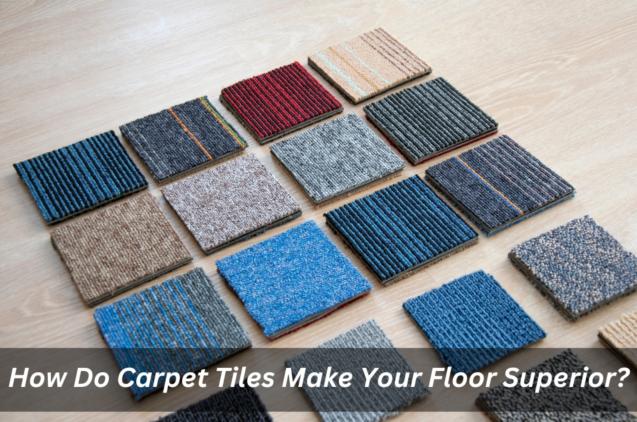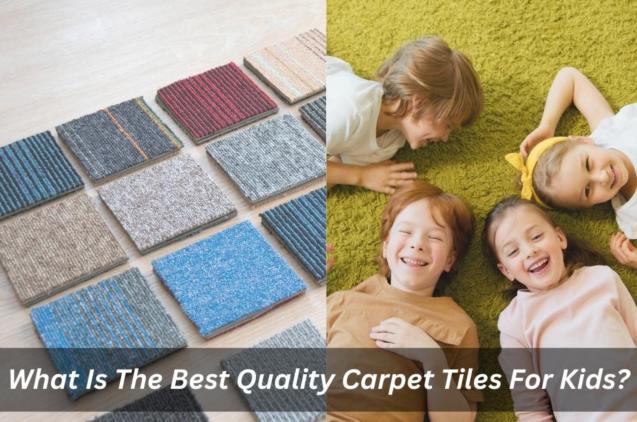
Things You Should Know About Vinyl Flooring
By Cosy Group|November 11, 2022
How much do vinyl flooring tiles cost? Are they costly to install? What type should you choose?
Vinyl floors are very affordable options. They come in various sizes and shapes and with scratch resistance to stains, moisture, and termites. In addition to being highly durable, they look great, too. If you want a flooring option that looks nice without costing a fortune, these might be perfect for you.
You can also buy vinyl flooring in different colours like grey, blue, black, white, brown, etc. This is one of the reasons why people prefer vinyl over hardwood and carpets. It comes in so many styles and designs that it will definitely satisfy your needs.
In this article, we will discuss what you need to know about vinyl flooring before buying them. We’ll also share some tips on how to protect them from getting damaged.
What Is Vinyl Flooring?
Vinyl flooring is made of polyvinyl chloride which is commonly known as PVC. A lot of companies use plastic when manufacturing products, including vinyl flooring. These materials are usually used for making pipes, shower pans, roof shingles, and pool liners.
The main advantage of using vinyl flooring is its durability. Vinyl floors are flexible and highly resilient. They can withstand high temperatures and extreme weather conditions. Not only this, but most of them don't contain any harmful chemicals.
Other than that, they are easy to install and maintain. They don't require extensive maintenance. And because of their ability to resist water, heat, and sunlight, you don't have to worry about spills or other accidents damaging them.
They are also easy to clean if you accidentally spill something on them. The material is soft enough so that you don't have to spend time scrubbing it off. Just wipe up the mess with a damp cloth and let it dry.
Another thing about vinyl floors is that they're eco-friendly. They last for a long term than wooden ones and won't emit any formaldehyde fumes. Also, unlike wood which requires regular upkeep, vinyl floors can last for decades.
How to choose Vinyl Flooring?
Before choosing a brand in a flooring store, make sure that it's safe to place under your feet. You should take a few seconds to check the label to make sure there aren't any warning signs. Some brands may include warnings about heavy traffic areas, hot water, and cold water while others are not.
Besides safety, you should consider the type of product you want. There are several options available such as tile, luxury vinyl sheet, modular, solid luxury vinyl plank, vinyl and laminate. Each type has its own advantages and disadvantages. Therefore, you should always ask professionals for advice before purchasing them.
Also, remember to take into account the size of the room where you plan to put the flooring. That way, you'll avoid wasting space since vinyl tiles tend to add bulk to rooms.
There are a few things you have to keep in mind when installing sheet vinyl flooring. First, it's important that the surface should be free of dirt, dust, and oil. Second, ensure that you remove all nails, staples, and screws prior to installation.
Third, make sure that you measure the area where the flooring will be installed. Lastly, make sure that the edges are sealed properly.
If you follow these steps, you'll end up having an amazing floor that lasts for years.
Types of Floor Coverings
There is a wide range of high quality flooring types available in the market today. You can find different types of floating
vinyl flooring depending on the type you prefer. In this section, we'll provide details on each one of them.
Carpet flooring
Vinyl floors are very affordable options. They come in various sizes and shapes and with scratch resistance to stains, moisture, and termites. In addition to being highly durable, they look great, too. If you want a flooring option that looks nice without costing a fortune, these might be perfect for you.
You can also buy vinyl flooring in different colours like grey, blue, black, white, brown, etc. This is one of the reasons why people prefer vinyl over hardwood and carpets. It comes in so many styles and designs that it will definitely satisfy your needs.
In this article, we will discuss what you need to know about vinyl flooring before buying them. We’ll also share some tips on how to protect them from getting damaged.
What Is Vinyl Flooring?
Vinyl flooring is made of polyvinyl chloride which is commonly known as PVC. A lot of companies use plastic when manufacturing products, including vinyl flooring. These materials are usually used for making pipes, shower pans, roof shingles, and pool liners.
The main advantage of using vinyl flooring is its durability. Vinyl floors are flexible and highly resilient. They can withstand high temperatures and extreme weather conditions. Not only this, but most of them don't contain any harmful chemicals.
Other than that, they are easy to install and maintain. They don't require extensive maintenance. And because of their ability to resist water, heat, and sunlight, you don't have to worry about spills or other accidents damaging them.
They are also easy to clean if you accidentally spill something on them. The material is soft enough so that you don't have to spend time scrubbing it off. Just wipe up the mess with a damp cloth and let it dry.
Another thing about vinyl floors is that they're eco-friendly. They last for a long term than wooden ones and won't emit any formaldehyde fumes. Also, unlike wood which requires regular upkeep, vinyl floors can last for decades.
How to choose Vinyl Flooring?
Before choosing a brand in a flooring store, make sure that it's safe to place under your feet. You should take a few seconds to check the label to make sure there aren't any warning signs. Some brands may include warnings about heavy traffic areas, hot water, and cold water while others are not.
Besides safety, you should consider the type of product you want. There are several options available such as tile, luxury vinyl sheet, modular, solid luxury vinyl plank, vinyl and laminate. Each type has its own advantages and disadvantages. Therefore, you should always ask professionals for advice before purchasing them.
Also, remember to take into account the size of the room where you plan to put the flooring. That way, you'll avoid wasting space since vinyl tiles tend to add bulk to rooms.
There are a few things you have to keep in mind when installing sheet vinyl flooring. First, it's important that the surface should be free of dirt, dust, and oil. Second, ensure that you remove all nails, staples, and screws prior to installation.
Third, make sure that you measure the area where the flooring will be installed. Lastly, make sure that the edges are sealed properly.
If you follow these steps, you'll end up having an amazing floor that lasts for years.
Types of Floor Coverings
There is a wide range of high quality flooring types available in the market today. You can find different types of floating
vinyl flooring depending on the type you prefer. In this section, we'll provide details on each one of them.
Carpet flooring
- Carpet flooring covering is made from an array of plush fibres (usually wool) that have been woven together to form large sheets. Also called rugs, carpet tiles, tapestry, wallcoverings, and upholstery.
- A Hybrid floor system combines a floating floor or floating floorboard with a sub-flooring structure that provides additional benefits in terms of energy efficiency and comfort. Floors can be installed on top of existing subfloors or concrete structures such as walls or columns.
- Wood floors may be made of any of many types of wood depending on their intended use, including hardwood (most common), softwood, bamboo, cork, and engineered wood products. Hardwoods tend to be less expensive than softwoods.
- Solid timber floors can be described as engineered flooring that is built using natural materials, including wood and stone, in an effort to mimic the look and feel of traditional solid hardwood floors.
- This kind of flooring is very popular among homeowners. It looks just like real hardwood but doesn't require much cleaning. It comes in three types: engineered, natural, and semi-gloss. It's mainly composed of wear layers of melamine resin covered by vinyl.



